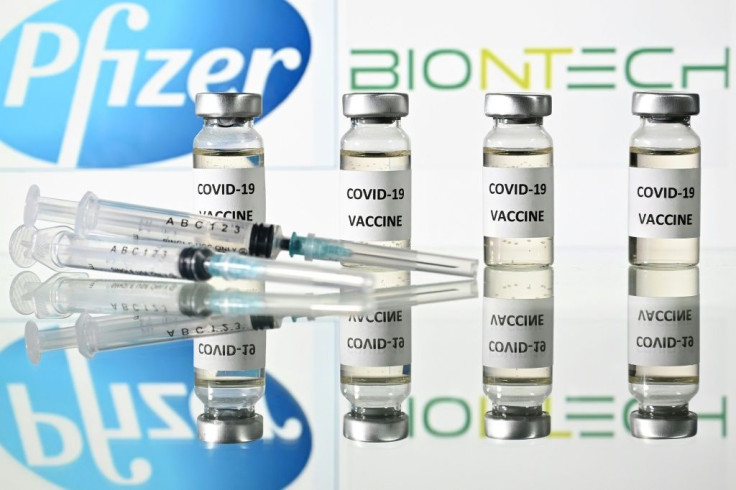What Causes Allergic Reaction In Pfizer Coronavirus Vaccine?
KEY POINTS
- Pfizer's COVID-19 vaccine has led to anaphylactic reactions in some vaccine receivers
- Researchers believe it could be caused by polyethylene glycol
- PEG has been described as a high-risk hidden allergen
An Alaskan health care worker suffered severe allergic reactions after receiving a dose of Pfizer and BioNTech’s coronavirus vaccine, prompting health care experts to consider whether tighter guidelines are needed.
The middle-aged woman had an anaphylactic reaction within minutes of receiving the vaccine at Barlett Regional Hospital in Juneau, Alaska. She reportedly developed a rash over her face and torso as well as an elevated heart rate. The woman had no history of allergies.
After steroids and an epinephrine drip failed to stop her symptoms from re-emerging, the health care employee was moved to an intensive care unit. She recovered Wednesday morning, and was set to be discharged later in the day.
Pfizer’s coronavirus vaccine was shown to be safe and 95% effective against the virus during a clinical trial that involved 44,000 participants. However, the Alaskan woman’s allergic reaction — which experts believe could have been life-threatening — may prompt calls for tighter guidelines.
Dr. Paul A Offit, a member of the U.S. Food and Drug Administration’s advisory panel that recommended the vaccine's authorization, urged researchers to find out what component of Pfizer’s vaccine is causing adverse reactions.
“I don’t think this means we should pause vaccine distribution. Not at all,” Offit said. “Researchers should figure out what component of the vaccine is causing this reaction.”
Pfizer’s vaccine uses the mRNA technology that teaches the human body’s cells to make the coronavirus' spike protein. The vaccine also contains salts, sucrose and the lipid polyethylene glycol (PEG).
PEG is a hydrophilic polymer commonly used in medicines, cosmetics or food. It also treats occasional constipation. Side effects may include nausea, bloating, diarrhea and hives.
While anaphylactic reactions to the component have been rare, it has been described as a high-risk hidden allergen in drug and food products, making it difficult for health care providers to detect.
“That seems to be the biggest issue. The other things are just fats and sugars and salts, things that typically don't cause full-blown anaphylactic reactions,” Dr. Todd Levin of Chattanooga Allergy Clinic told News Channel 9.
“The key is to talk to your doctor, but in general if you have environmental allergies this is not going to be an issue for you. If you have food peanut allergies, if you're allergic to penicillin or other drugs not in the vaccine, then this is likely not going to be an issue for you,” he added.

© Copyright IBTimes 2024. All rights reserved.






















